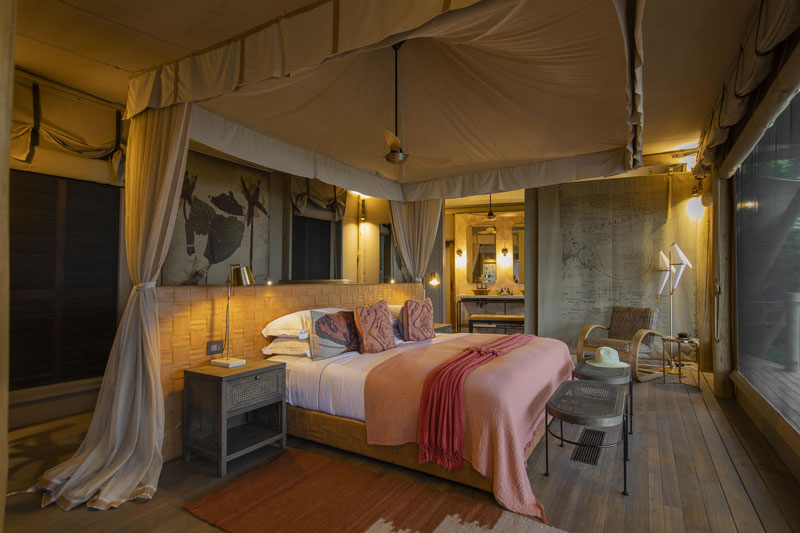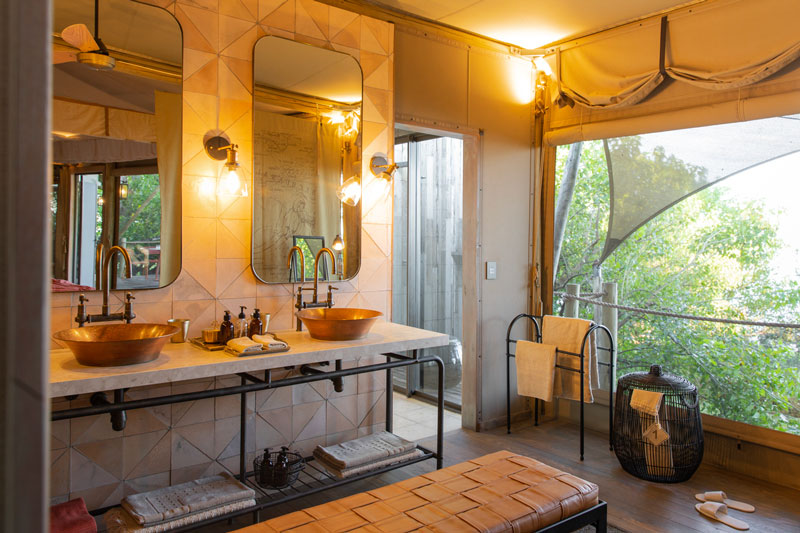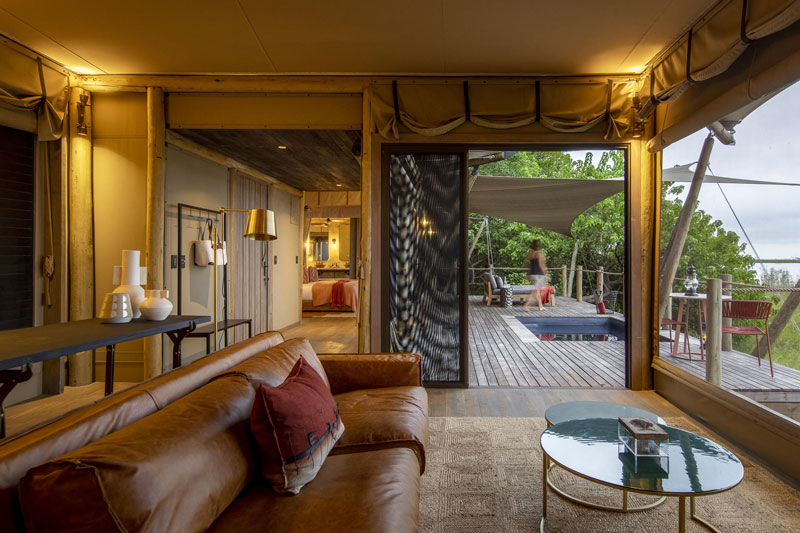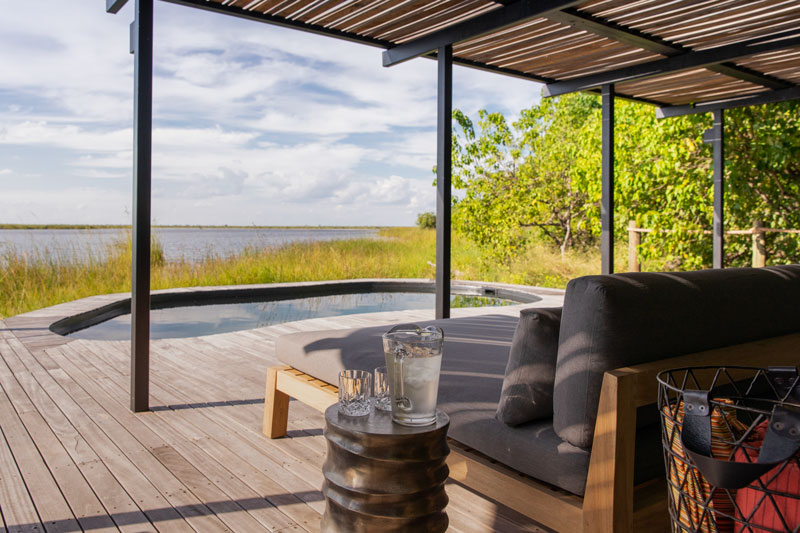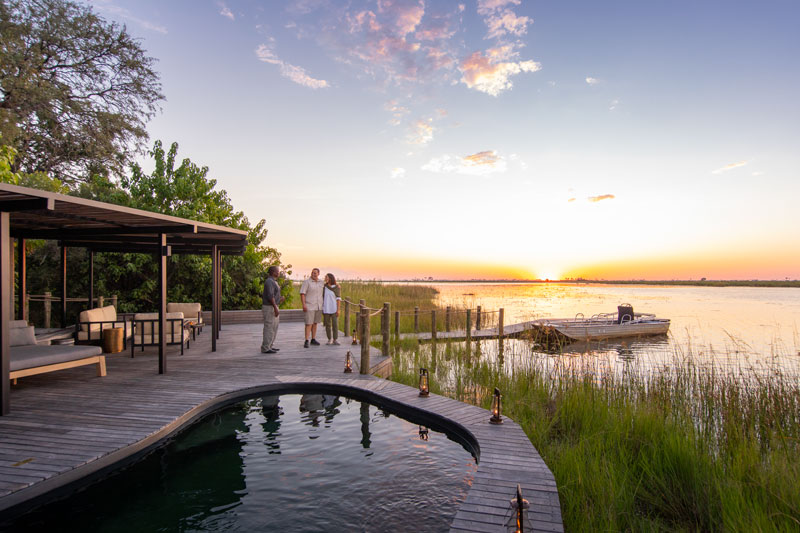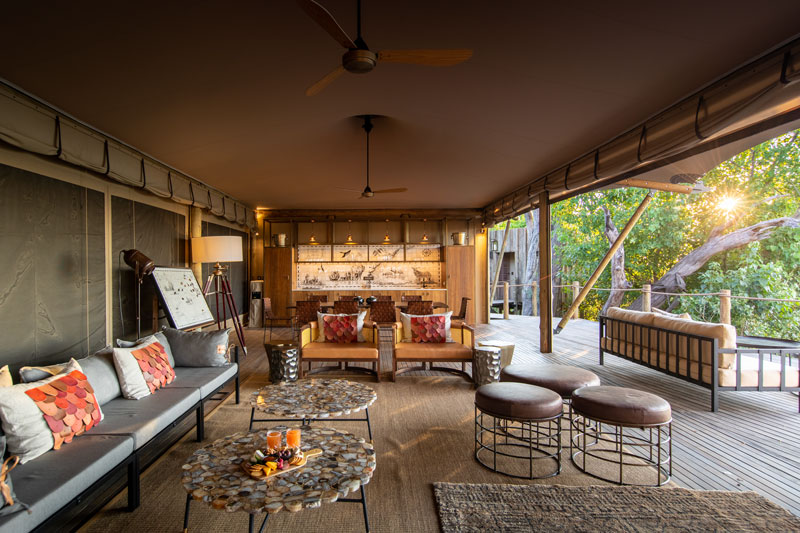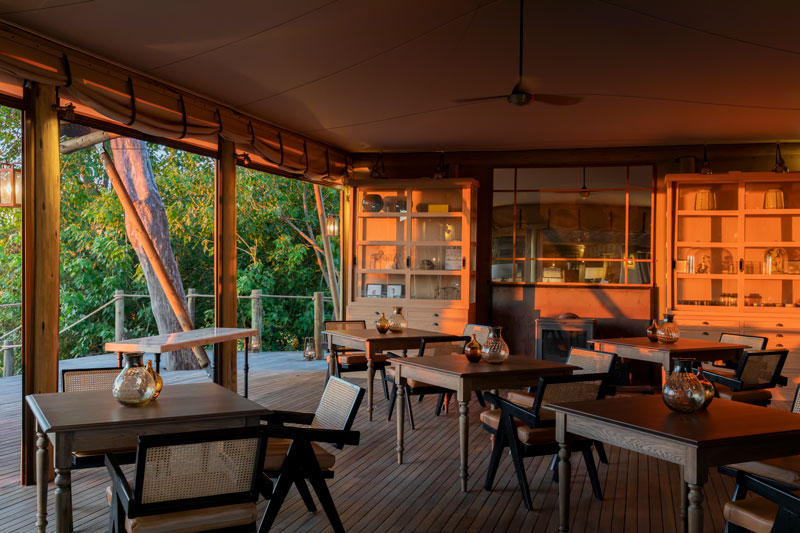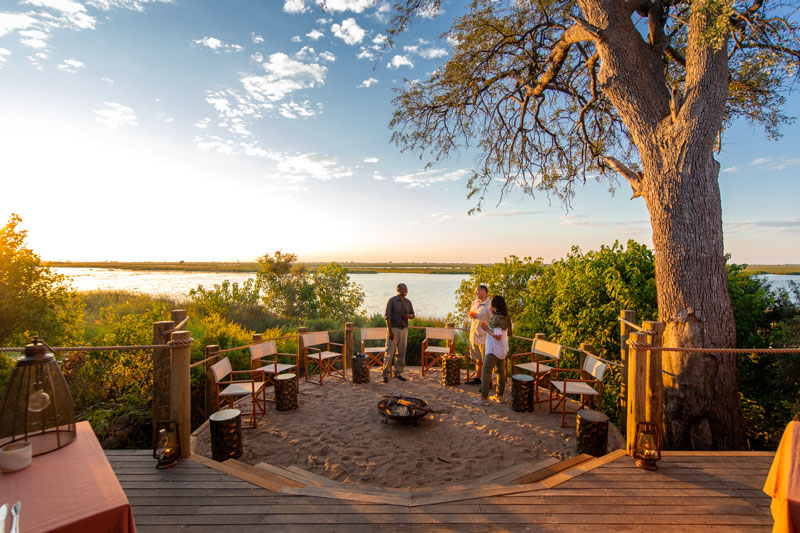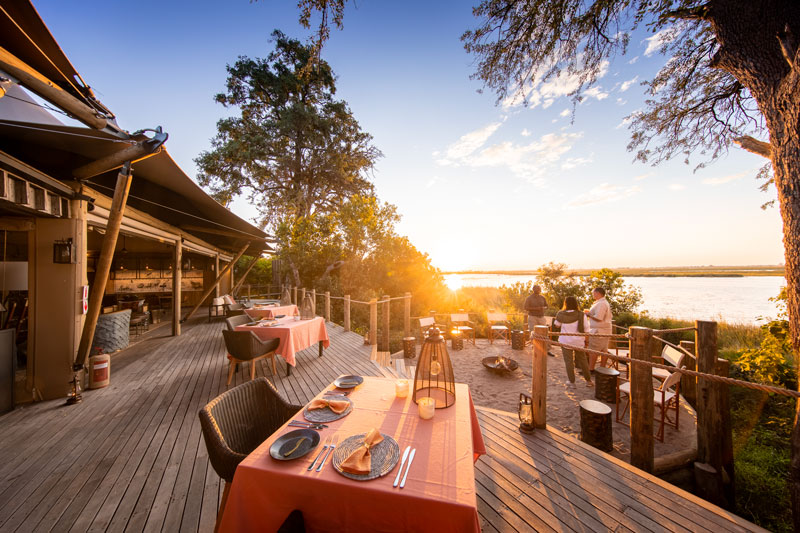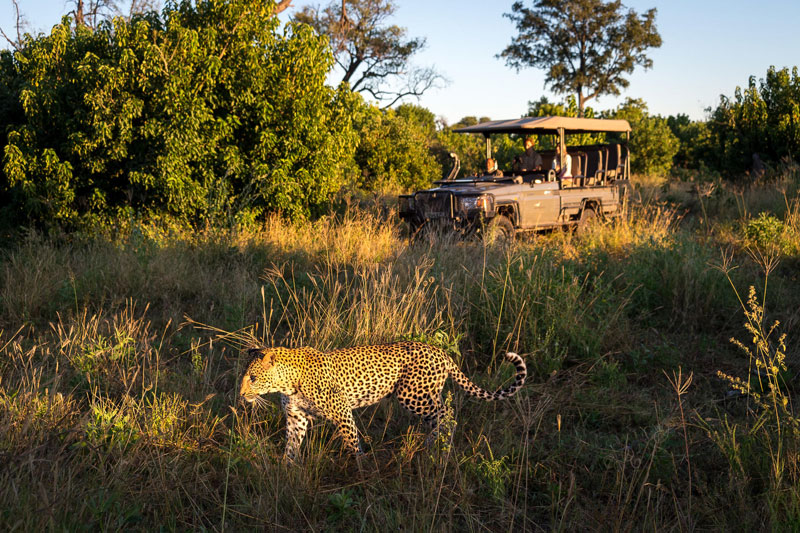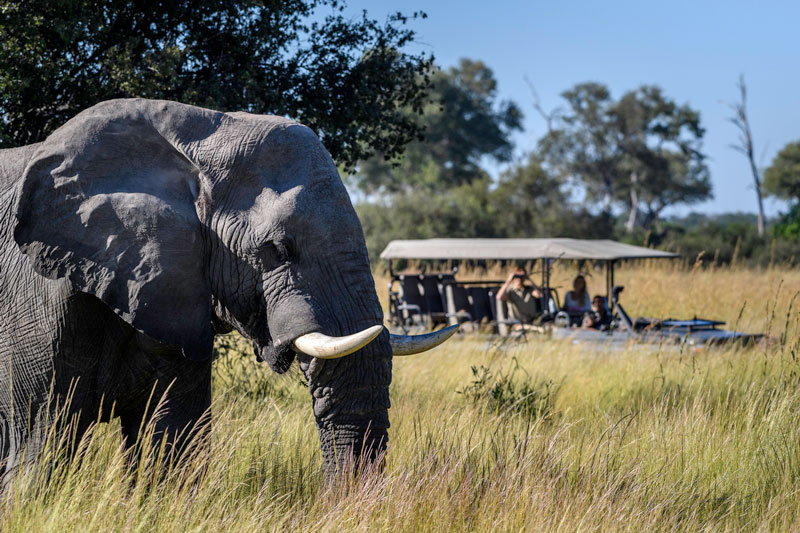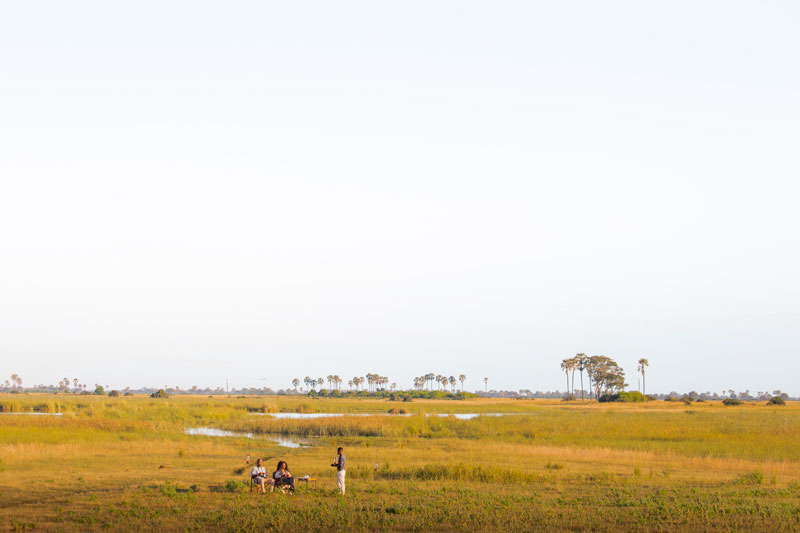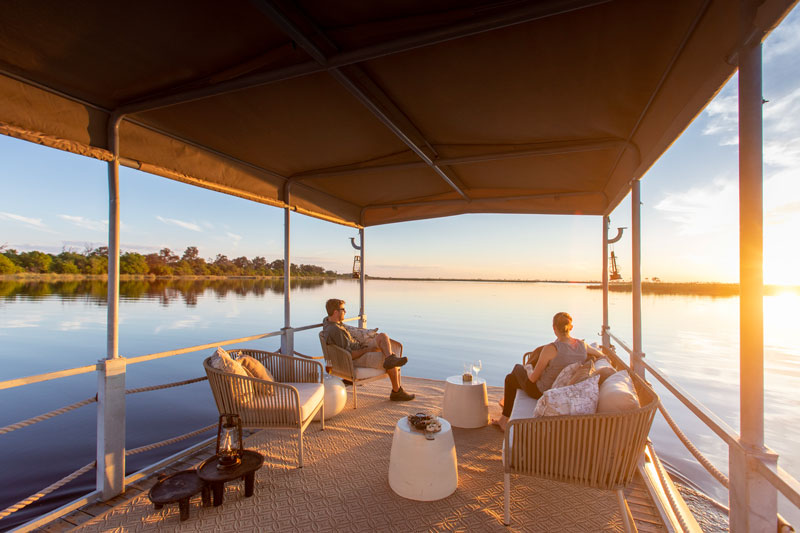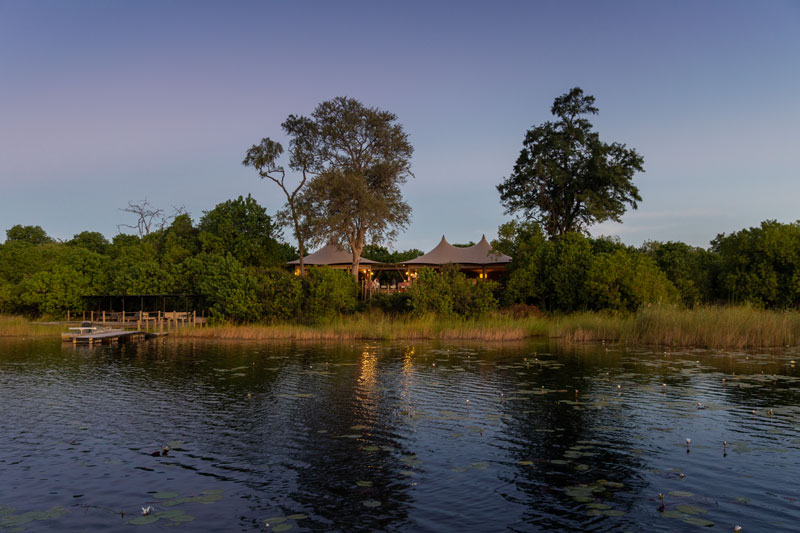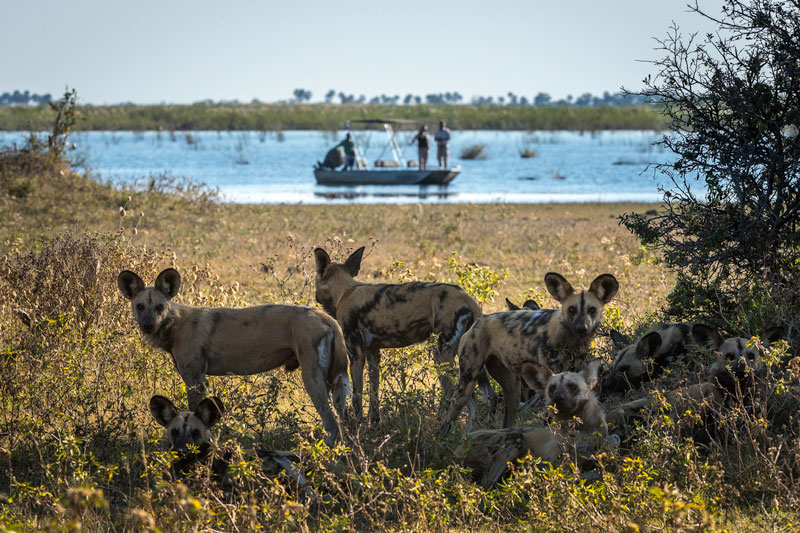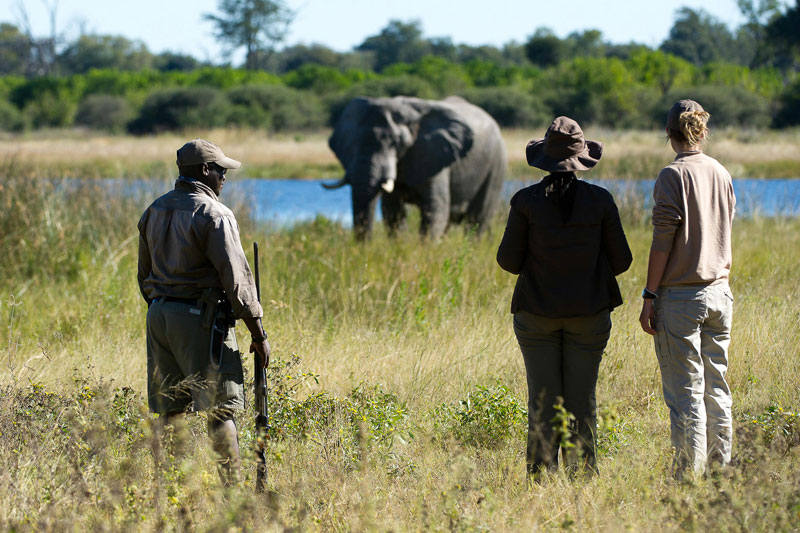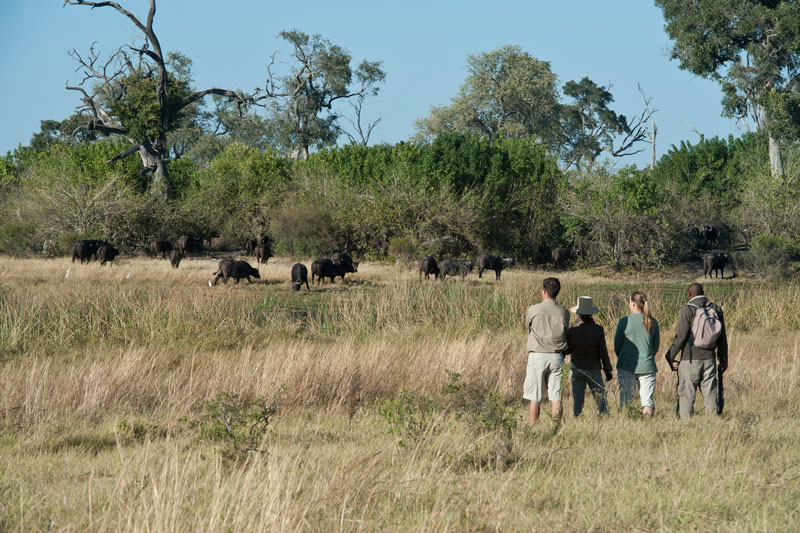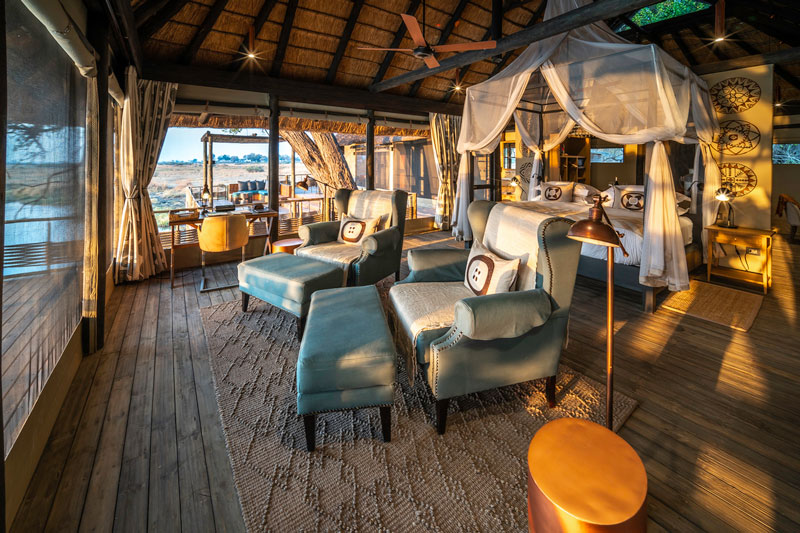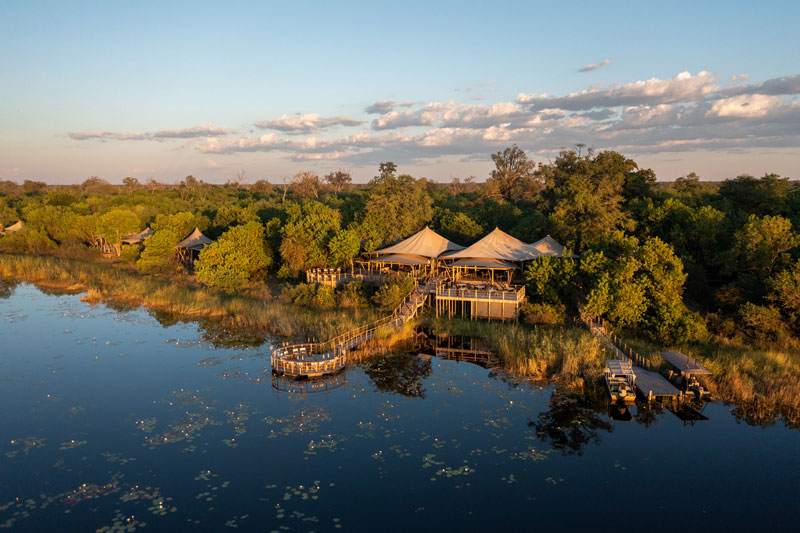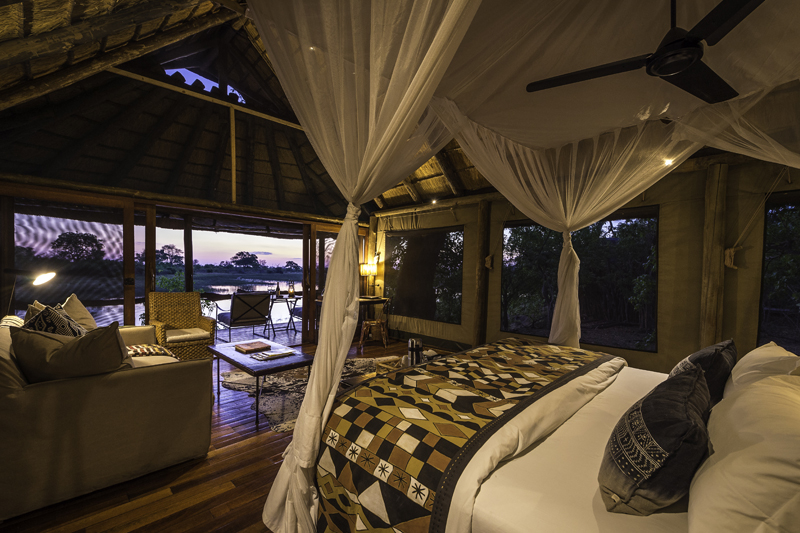Wilderness Little DumaTau
Wilderness Little DumaTau is an intimate tented lodge in the remote Linyanti concession of northern Botswana.
Wilderness Little DumaTau is located next door to the main DumaTau camp and occupies similar stunning waterfrontage on Osprey Lagoon with exactly the same design of contemporary luxury tented accommodation and the same access to outstanding big game viewing and birdlife. All at the same price tag too. The main difference, as the name suggests, is that Little DumaTau is more intimate with just four tents and so perfect for those who prefer a more private experience or for groups of families and friends who want exclusive use of a camp and the flexibility and privacy that brings.
Rooms
Accommodation is offered in just four spacious tented suites which are built on to raised wooden decks, just meters from where wildlife roams through the camp. Each suite has an indoor lounge and bedroom, leading on to an outdoor lounge area with sala and a private plunge pool. En-suite facilities comprise an indoor shower, outdoor shower, double basin vanity, bath tub and separate toilet. Further facilities include a writing desk and chair, easy chairs, luggage rack, mosquito net, electronic safe, tea and coffee making facilities, mini-bar and ‘gym in a bag’.
Central Areas
Little DumaTau has its own main area with lounge, dining and bar areas under canvas and raised on a wooden deck with lagoon views. There is a floating fire pit deck and a swimming pool with partially shaded deck. A wooden walkway links the camp to main camp where guests can make use of the central wellness centre which also has a gym, drink and snack counter, and curio shop.
Facilities
Wi-Fi – Yes
Power for charging – Yes
Swimming pool – Yes
Habitat & Wildlife
The Linyanti concession is run by Wilderness Safaris and is home to several camps – Duma Tau, Little Duma Tau, Kings Pool and Linyanti Tented Camp overlooking the Linyanti wetlands in the north and Savuti Camp overlooking the Savuti Channel in the south/central region. The concession covers a huge area, some 300 000 acres, and offers a classic big game wilderness experience.
The habitat along the Linyanti River is one of lush riverine woodland, giving way to the drier, mopane dominated woodlands of the interior, through which the Savuti Channel snakes it way to eventually feed the Savuti Marsh. The Savuti Channel is a seasonal waterway which extends south-eastwards from the Linyanti/Kwando river systems. In years of good rains, the channel holds water throughout the year but it is a delicate system easily affected by drought and tectonic plate movement. After several years of holding water, the channel is in a cycle of drying out again.
Once the dry season commences, the Savuti and Linyanti waters attract large herds of buffalo, zebra and elephant and the predator species which follow them, particularly lion. Other animals likely to be seen include hippo, kudu, impala, zebra, tsessebe, red lechwe, eland, sable antelope, giraffe, and wild dog. On night drives, you’ll have the opportunity to view nocturnally-active species such as bat- eared fox, spring hare, leopard, spotted hyaena, aardwolf, porcupine, aardvark, honey badger, bushbaby, civet, genet, serval and wild cat.
The birdlife is prolific, attracting both water and dry country species such as slaty egret, Allen’s gallinule, wattled crane, and African skimmer, as well as, Bradfield’s hornbill, white-breasted cuckoo-shrike, Bennett’s woodpecker, Arnott’s chat, Kori bustard and secretary bird. The area is even better when the summer migrants return and swallow-tailed and carmine bee eaters, racket-tailed rollers, and high concentrations of raptors, including Dickinson’s kestrel, are commonly seen.
Activities
Activities include game drives (day and night), guided walks and boat cruises on the Linyanti River. Helicopter scenic flights are possible (extra cost) and can be arranged either locally or in advance. Fishing can be arranged (March to December only) with basic spinning gear supplied in camp. Guests at Little DumaTau also have the option (at an extra cost) of arranging an excursion to learn more about CLAWS (Communities Living Among Wildlife Sustainability – an organisation focussing on reducing conflict between people and predators) or a “Life With Elephants” village visit with EcoExist (an NGO aiming to reduce conflict between people and elephants).
Seasons
Wilderness Little DumaTau is open all year round, though game viewing is best from June to early November. However, birding is best from November to April.
Wilderness Little DumaTau accepts children 6 years and older though with big game regularly wandering through camp, it is naturally a destination for families with slightly older children. The absence of dedicated family accommodation means that DumaTau main camp would lend itself better for families wanting to be all under one roof. For extended families and those with older teenagers, Little DumaTau would offer a wonderful option for an exclusive family safari.
Wilderness Safaris established the Children in the Wilderness programme (CITW) focusing on the children from villages close to the remote areas in which they operate, educating them in environmental awareness and training them in the life skills needed to care for and nurture their natural environment. Some of these programmes include operating annual camps for up to 30 children at a time in their lodges, running regular Eco-Clubs in rural schools, Youth Environmental Stewardship (YES) which mentors particular children who have shown a strong interest in their environment and scholarship programmes for primary, secondary and tertiary education.
The Wilderness Wildlife Trust is involved in conservation, anti-poaching, community empowerment and education. The Trust has many projects throughout Botswana (Wildlife Research Increasing Capacity), Namibia (Desert Dwelling Giraffe Study), Zimbabwe (Hwange Elephant Movement Study), Zambia (Zambian Carnivore Program), Malawi (Mobile Response Unit) and Rwanda (Shoebill Arial Survey).
In 2019 Wilderness Safaris joined the Lion Recovery Fund and several of Africa’s other safari operators to form the Lionscape Coalition to raise funds for and awareness of lion conservation.
Conservation projects closer to the Linyanti area include working with local authorities and supporting the research of threatened species that can be found in the area such as wild dog, roan antelope and elephant amongst others.
The camp has a reverse osmosis water filtration system providing drinking water to guests drastically reducing the need for bottled water. Eco friendly detergents and chemicals are used in all Wilderness Safaris camps, adhering to strict in-house environmental standards.
Wilderness Safaris also offers its guests the option to bring a donation of supplies in partnership with Pack for a Purpose where guests may use the empty space in their suitcases for donations of much needed supplies for supported projects.



